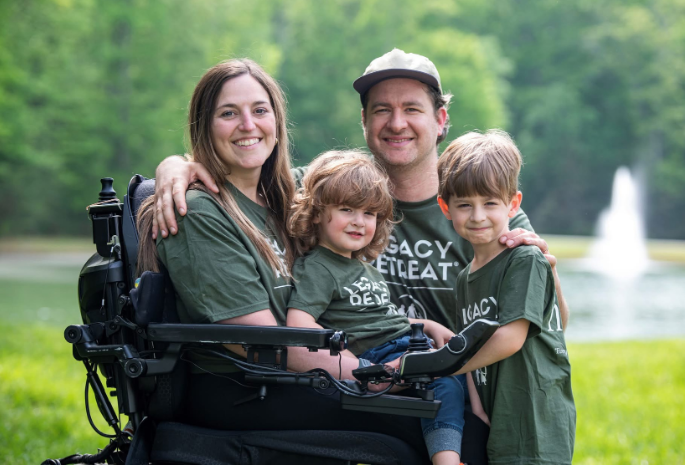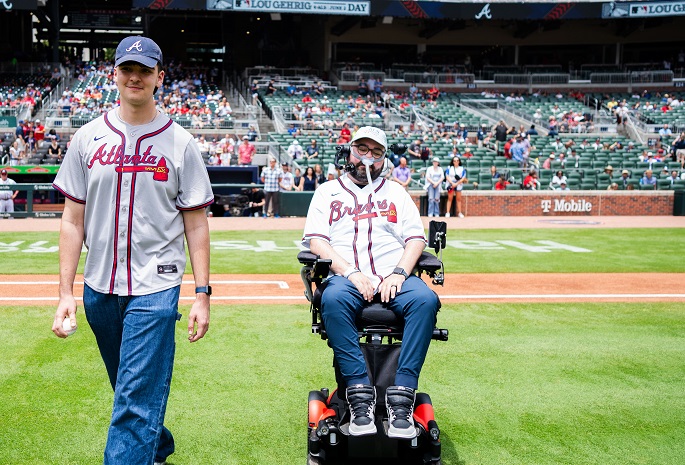Before taking the field for a big game, Kerry Goode would give himself a pep talk.
“Stay in the moment,” the former star running back at the University of Alabama would tell himself. “Don’t get ahead of yourself. If things go wrong, don’t go wrong with it.”
Kerry is putting those words to use now as he wages an off-the-field battle against his nervous system.
In 2015, he was diagnosed with amyotrophic lateral sclerosis (ALS). It’s commonly called Lou Gehrig’s disease. There is no cure for the neurodegenerative disease that affects nerve cells in the brain and the spinal cord.
Goode’s symptoms started with breathing issues, chronic sinus infections, weakness, cramps, and weight loss. His wife and full-time caregiver, Tanja, saw a marked change while watching Kerry through the kitchen window.





